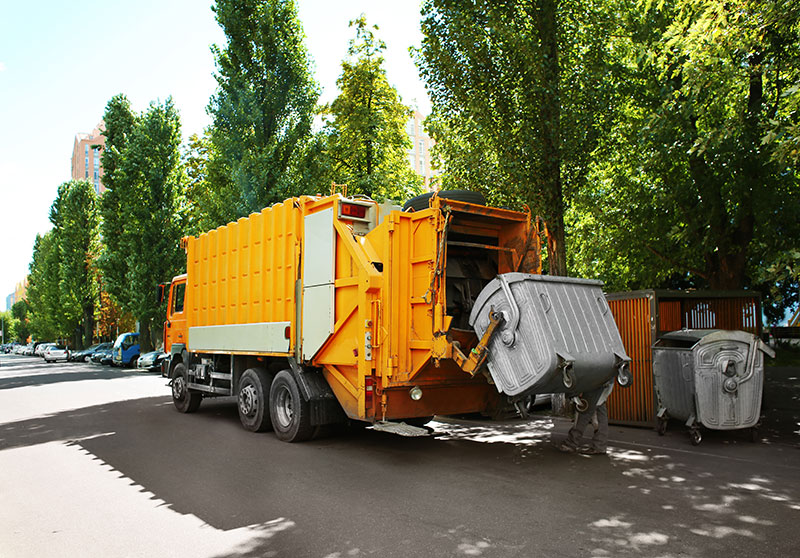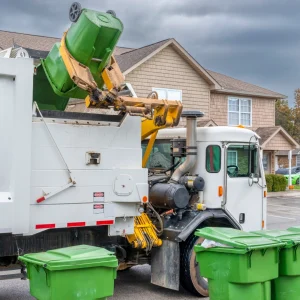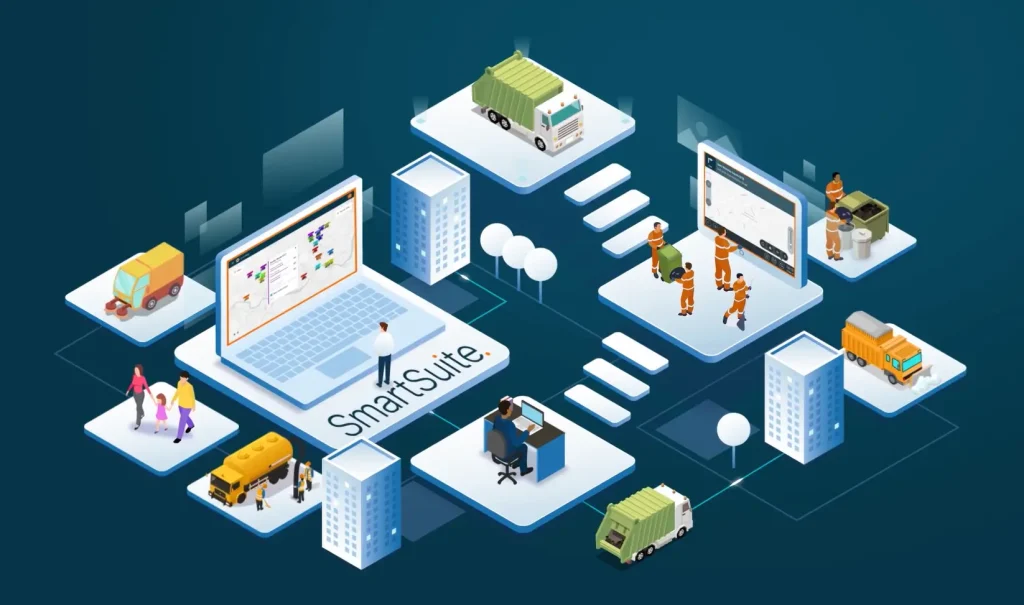Lets work together



Suite 3A, Chapel Allerton House, 114 Harrogate Road, Leeds, LS7 4NY
ukinfo@integrated-skills.com
+44 (0) 3300 888 670

UK waste management is undergoing a transformative period as the government rolls out Simpler Recycling. Non-household municipal premises (businesses, schools, hospitals, and similar organisations with 10 or more full-time employees) are already legally required to implement separate collections for food waste, dry recyclables, and residual waste. For micro-firms (defined as those with fewer than 10 employees), the deadline is extended to March 2027.
These reforms mark a critical moment for commercial waste collection services for both private waste operators and for local authorities who provide commercial waste services and are seeking to modernise and maximise operational efficiency within tight budgetary constraints.
Here we’ll be outlining the new challenges local authorities may be facing under the recycling reforms, as well as how Integrated Skills are poised to help.
Regulatory Mandates and Local Authority Implications
Simpler Recycling has been brought in to remove regional inconsistencies, ensuring that waste and recycling collections are standardised across the country. Under these reforms, all eligible businesses must arrange for separate collections of core recyclable materials:
This brings businesses closer in line with household recycling requirements and aims to improve recycling rates nationally. For local authorities, these reforms present both an opportunity and a challenge.
On one hand, councils that offer commercial waste services may find themselves well-positioned to grow their customer base by offering compliant, tailored services. On the other hand, adapting existing infrastructure to cater for separate waste streams, adjusting collection schedules, and ensuring that the services remain financially viable requires considerable planning and investment.

Business-Readiness and the Compliance Gap
Despite the looming deadline, a significant proportion of businesses are unprepared. A July 2024 survey by First Mile, a leading commercial waste collector and Integrated Skills customer, revealed that 64% of English businesses have not yet made the necessary changes to comply with the Simpler Recycling legislation.
This lack of preparation stems from a combination of factors: uncertainty around what constitutes compliance, a lack of internal waste management infrastructure (such as separate bins and signage), and concerns about increased collection costs.
Many businesses are particularly unclear about how dry recyclables should be separated and where certain items such as cartons or soft plastics fall under the required categories. Additionally, food waste collection presents logistical difficulties for firms without existing provisions.
For local authorities, this translates into a need for proactive communication and support services to ensure that business customers understand their responsibilities and how to meet them.
Operational Challenges: Infrastructure and Routing
One of the most significant hurdles local authorities face is adapting existing waste collection infrastructure to accommodate the new requirements. Implementing separate collections for food waste, dry recyclables, and residual waste will require changes to the type and number of containers provided, as well as modifications to fleet operations.
Food waste in particular demands more frequent collections to avoid hygiene issues – especially for hospitality and catering businesses. This could mean that daily or multi-weekly collections become necessary in urban centres. Consequently, the logistical burden increases, with collection schedules becoming more complex and routes more congested. Route duplication and under-utilised vehicle capacity could lead to higher operational costs if left unaddressed.
Integrated Skills’ route optimisation software offers a powerful solution. The platform helps local authorities reduce fuel consumption, lower emissions, and improve service reliability by using advanced algorithms to design efficient collection routes that account for:
Financial Pressures and the Cost of Compliance
Implementing Simpler Recycling compliance measures is not without financial implications. Local authorities must invest in new containers, vehicles, and workforce training, all while operating under significant budgetary pressures. There is also the potential loss of revenue to consider if businesses turn to private collectors offering lower-cost services.
But commercial waste services can represent a valuable income stream for councils, provided they remain competitive and cost-effective. The key is to strike a balance between meeting regulatory requirements and maintaining a financially sustainable operation. Offering value-added services such as waste audits, recycling training, and digital reporting tools can help justify pricing while supporting businesses in achieving compliance.
Digital transformation plays a critical role in this context. With Simpler Recycling comes a renewed emphasis on data tracking, including mandatory digital waste transfer records to reduce waste crime and improve accountability. Route optimisation solutions integrated with digital waste tracking systems provide local authorities with real-time insights into collection efficiency, contamination rates, and customer compliance.

Supporting Businesses Through the Transition
A successful transition to Simpler Recycling will depend on effective collaboration between local authorities and their commercial customers. Businesses need practical support in the form of clear guidance, signage, and bin labelling, as well as access to advice and audits that can help them streamline their internal waste management systems.
Authorities can draw lessons from providers like First Mile, which has been proactive in offering compliance checks, waste management consultations, and staff training to its customers. These efforts not only support businesses in meeting their legal obligations but also build trust and improve service uptake.
Communication strategies should be tailored to different business types and sizes; while large organisations may require bespoke support for complex waste streams, smaller businesses often benefit from simplified guidance and clear, easy-to-implement solutions.
Authorities should also begin engaging micro-firms now, even though their compliance deadline is two years later, to build awareness and avoid a secondary rush.
Gaining A Technological Edge
Technology will be vital in overcoming the operational and financial challenges of Simpler Recycling. Integrated Skills’ route optimisation software is designed to address precisely the kinds of issues that local authorities will encounter as they adjust their commercial waste collection services.
The platform optimises vehicle routes by accounting for the unique requirements of multi-stream collections, varying collection frequencies, and customer-specific needs. It also enables dynamic scheduling to respond to urgent requests or seasonal changes in waste volumes. With real-time data and performance dashboards, local authorities can track efficiency, measure compliance, and make data-driven decisions to continually improve service delivery.
By integrating waste collection data with customer records and digital compliance tracking, authorities can ensure that they not only meet the statutory requirements of Simpler Recycling but do so in a way that is transparent, efficient, and cost-effective.
Meeting the Moment with Integrated Solutions
As the March 2025 milestone has now passed, local authorities must ensure their commercial waste services are compliant with Simpler Recycling legislation. The challenges are significant: businesses are underprepared, operational models must be restructured, and budgets remain tight.
But these reforms also present an opportunity to modernise commercial waste services, expand service offerings, and boost recycling rates across the country. With the right combination of policy, planning, and technology, local authorities can navigate this transition successfully.
Integrated Skills stands ready to support local authorities in this endeavour – providing the tools needed to deliver smarter, cleaner, and more efficient commercial waste services for the future.
Would you like to know more about Commercial Waste Collection – Challenges in 2025? Fill in your details below and let us know how we can help.
Website Designed & Built by we are CODA